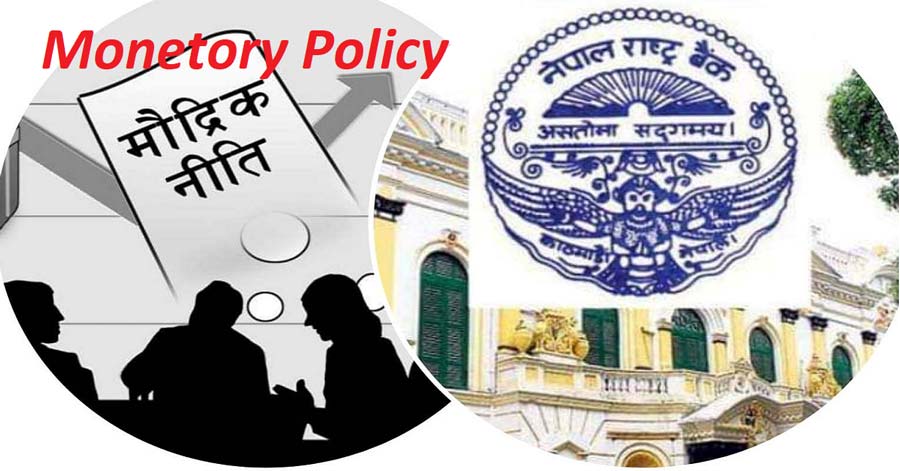
'Monetary policy should Address Infrastructure Problems':
Stakeholders have stressed the need to bring the monetary policy in the coming fiscal year to revive the physical infrastructure sector which has been in trouble due to COVID-19, which has emerged as a global pandemic.
In a 'virtual' discussion organized by The Society of Economic Journalists-Nepal (SEJON), participants said that simple interest rates, refinancing arrangements and some policy reforms could give new life to infrastructure problems caused by Corona. He said in unison, "It is only when there is a problem that the state can make effective policy reforms. Even if some issues are addressed in the budget, the missing issues should be covered by the monetary policy."
Ashish Garg, General Secretary of Independent Power Producers' Association-Nepal (IPPAN), stressed on the need to address the problems in the energy sector through monetary policy as energy is the basis of the country's prosperity. Stressing on the need to increase the scope of refinancing funds, he said that the monetary policy should give clear instructions to the banks and financial institutions on fixed interest rates.
He said that the monetary policy of the coming fiscal year should facilitate the inflow of foreign investment in the hydropower sector where there is zero foreign investment.
Former Energy and Finance Secretary Suman Prasad Sharma said that the provisions included in the monetary policy would affect the energy sector and that the interest rate on investment in hydropower should be reviewed. He suggested that the issue of ensuring financial resources for sick projects be included in the monetary policy. "The skills of people returning from foreign employment should be used in the field of hydropower," he said.
Stressing on the need to encourage the industry to increase electricity consumption, he said that these issues should be included in the monetary policy. Stressing on the need for immediate provision of hedge funds and credit rating, he said that further facilitation should be made to attract foreign investment. Stating that there is a demand for capital from all over the world along with the global epidemic, he said that Nepal should make more efforts to attract foreign investment.
Stating that monetary policy alone will not be able to remove the impediment in attracting foreign investment, he stressed on the need to address it through monetary policy. "Nepal needs to have a credit rating. We need to create an environment where investors can be confident," he said.
Ravi Singh, president of the Federation of Construction Entrepreneurs of Nepal, said that the post-agriculture employment sector was infrastructure and 1.5 million people were employed in the infrastructure sector. He said that the construction work could not proceed smoothly due to Covid-19.
"Most of the Indian workers have returned due to COVID-19. They are less likely to return. Monetary policy should make arrangements for workers who have returned from foreign employment and those displaced from other professions to work in the infrastructure sector," he said.
Stating that more than 80 percent of the development budget is occupied by limited construction entrepreneurs, he urged the government to make arrangements for more entrepreneurs to get jobs. "The government should provide bridgework to those who want to get employment in the infrastructure sector," he said. "There is a suitable opportunity now. We have suggested the government to make arrangements to work up to Rs 50 million at the local level to create employment wherever you are."
He stressed on the need to strengthen the infrastructure sector while aiming to develop Nepal as a middle-income country by 2030 BS. In the past, the private and government sectors worked together for Rs. 8 trillion. Now, it is seen that the total expenditure will be around Rs. 3 trillion, ”he said.“ The working environment in the infrastructure sector should be created and the attitude towards entrepreneurs should be changed. ”
Emphasizing on the need to bring a policy of maximum consumption of energy, energy entrepreneur Gyanendra Lal Pradhan said that monetary policy should be subsidized at 5 percent interest and those who come to invest in Chinese and Indian currency should be allowed to sign power purchase agreements (PPAs) in the same currency.
Stating that foreign investment will not flow in if PPA is done at Nepali price, he urged to set up a hedge fund as soon as possible. "We need monetary policy to encourage production," he said. "Monetary policy should facilitate the inflow of foreign investment."
Former Vice President of the Computer Association of Nepal (CAN) Sunaina Ghimire Pandey stressed on the need to take the Internet as a basic need and said that the tax on the Internet should be waived. "Nepal has the highest royalty in South Asian countries, value-added tax and additional tariffs on internet wire purchases," he said. "The internet should be made accessible by waiving customs and taxes."
"Monetary policy should address the issue of cybersecurity, increase investment in internet infrastructure," he said, adding that "a mechanism should be set up to attract foreign investment in the field of information technology."





